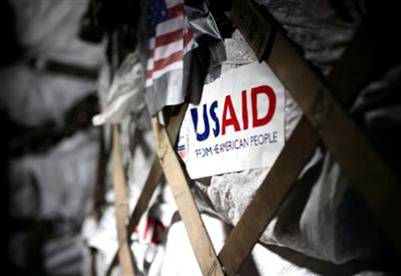African expectations of the US election should be low, according to the Nordic Africa Institute (NAI’s) head of research, Victor Adetula. Whichever candidate wins, Africa is unlikely to be a priority of the next administration in the US.
Mr. Adetula points out that institutions and traditions that have developed over more than a century drive US foreign policy. They will not change dramatically with a new president.
Moreover, traditionally domestic issues dominate and are decisive in electing presidents. International issues involving Africa seldom make it onto the debating agenda, or are, at best, very low on the list.
Consequently, American policy on Africa continues to favour increased trade instead of aid and assistance. This has been the policy during President Obama’s term of office and is, in fact, not just a US strategy but a global trend.
“Africans should not deceive themselves. They are not very relevant in the US,” Adetula states (og det selv om det afrikanske kontinent er fire gange så stort som USA og snart tæller en milliard mennesker, red.).
Decay of democracy (demokratiets forfald)
Beyond this issue, by following the electoral campaign, he has observed what he calls the decay of American democracy whereby both candidates want to change democratic norms.
The Democrats started their pluralistic journey by electing Barack Obama as the first black president eight years ago and now continue by promoting Hillary Clinton as the first female president.
On the other hand, Adetula views Donald Trump as the embodiment of a type of political populism that runs counter to the view that democracy should reflect the interests of all.
“The only lesson for us Africans is that periodic elections don’t resolve issues. I strongly believe that pushing for only elections in Africa is the wrong move. Before elections take place, African countries need to have effective institutions in place”, Adetula remarks, adding:
“For instance, in Egypt, where street protesters proved incapable of transforming themselves into viable political parties, the only other options left were rule by Islamists or the military.”
Context and peculiarity (særegenhed)
For him, this demonstrates the importance of context when one speaks of democracy. Considering the peculiarities of each society is necessary.
At the moment, Adetula notes, the index of elections held in Africa mirrors the index of increasing violent conflicts and corruption.
“Under such circumstances, elections serve no purpose. Basic conditions of governance must first be in place. Only then can people elect their leaders and enjoy democracy,” Adetula concludes.
Kilde: Nordisk Afrikainstituts seneste nyhedsbrev onsdag.














